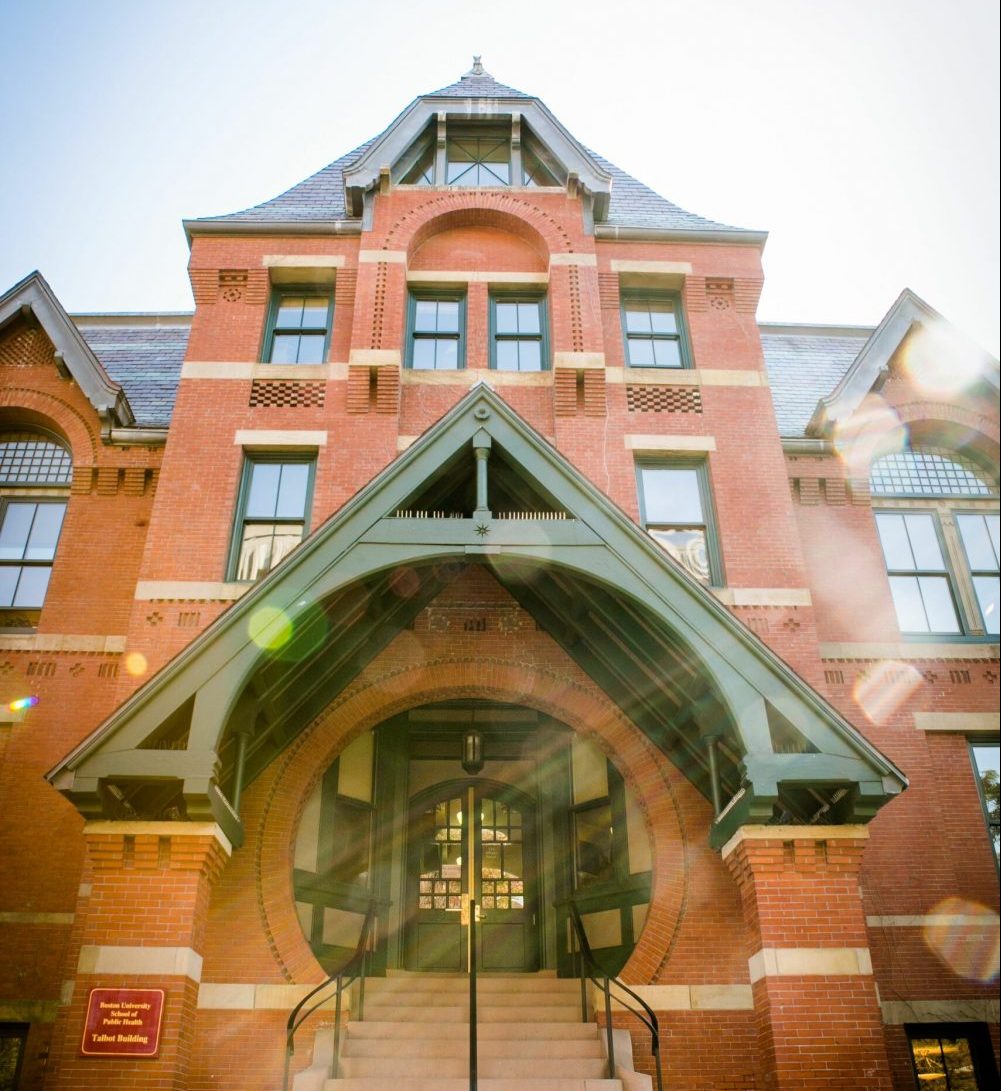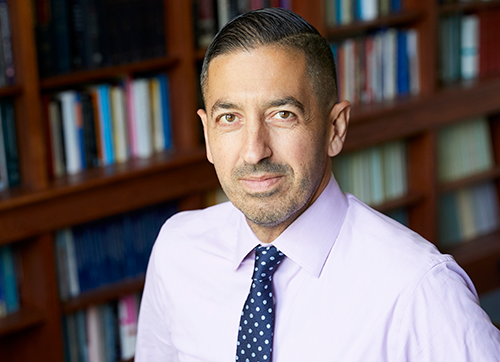Welcoming Pride Month.

Welcoming Pride Month
Celebrating Pride Month in a time of progress and challenge for LGBTQ+ health.
This week marks the start of Pride Month, a time for celebrating the LGBTQ+ community. It is when we mark the contributions of this community, acknowledge how far we have come towards greater acceptance of LGBTQ+ populations, and recognize the steps we still must take to get to a world where everyone is accepted. In celebrating the LGBTQ+ community, we are celebrating an integral part of who we are. The LGBTQ+ community is our school community, and it is our extended social network. It is our friends, colleagues, mentors, students, and the populations we serve. It is our parents, grandparents, sisters, brothers, cousins, and spouses. It is, fundamentally, us.
Supporting the health of the LGBTQ+ community is central to our mission of creating healthy populations. We aspire to improve the health of those who have historically been marginalized, by addressing the socioeconomic roots of their marginalization. The forces in our society that have kept LGBTQ+ health vulnerable have long posed a challenge to public health. Homophobia, transphobia, and the denial of basic civil equality to the LGBTQ+ community has kept our society from being as healthy as it could be. Addressing these challenges is inseparable from our broader aim of creating a healthier world.
This Pride Month, we have much progress on which to reflect. Recent years have brought welcome strides towards greater LGBTQ+ acceptance. These gains include marriage equality, the Bostock v. Clayton County Supreme Court decision affirming that transgender individuals are covered by the protections of the Civil Rights Act of 1964, and greater visibility for the LGBTQ+ community in a range of areas. While this progress has been long overdue, the pace at which it has moved in recent years is worthy of reflection and, indeed, pride—pride in a civil rights movement that has achieved remarkable success.
I found myself reflecting on this in the context of a recent New York Times article. The piece confirms that former New York City Mayor Ed Koch was gay, as had long been rumored, and it reflects on the societal forces that may have played a role in his choice to remain closeted (adding perhaps extra poignancy to his story, he was the first NYC mayor to march in the city’s Pride parade). The article suggests that fear of being outed may have informed his arguably muted response to the AIDS crisis in the years when he was mayor. This personal and public tragedy feels both recent and far off. On one hand, the Koch mayoralty was not so long ago, reflecting how close we still are to a very different status quo around LGBTQ+ issues. On the other hand, seen through the lens of recent progress, it may as well have unfolded on another planet, light years from today.
I could not help but think of this in the context of the announcement, just two days before the Times article ran, of Karine Jean-Pierre, a lesbian, as the new White House Press Secretary. The contrast between the story of Ed Koch and the choice of an out member of the LGBTQ+ community as the president’s voice to the media is striking and deeply hopeful about the trajectory of American society when it comes to LGBTQ+ acceptance. We have truly come far, and this is worth celebrating.
But there is, of course, an enormous amount of work to do. The LGBTQ+ community still faces many challenges, some existential. I have written previously about a number of proposed laws around the country that could undermine the rights of the LGBTQ+ community, doing particular harm to the transgender population. Any effort to erase the hard-won rights of the LGBTQ+ community represents a threat to health and human dignity. We can only be healthy when we can access dignity, respect, and the legal protections that guarantee full participation in society. Insofar as any law would roll back these necessary resources, we should oppose it. It is deeply unfortunate that we should see efforts to harm LGBTQ+ health after so much progress has been made. This speaks to the importance of continuing to advocate for the dignity, inclusion, and health of the LGBTQ+ population. Such work must be global in scope. While the LGBTQ+ community faces challenges in the US, it faces far worse in many other countries, where LGBTQ+ individuals can be met with harassment, abuse, and even death. As we celebrate Pride Month, we should remember those who cannot yet do so, who continue to face conditions it is our responsibility to address.
Pride Month, then, is a chance to celebrate progress and recommit to building on what we have achieved, to create a healthier, more just status quo for the LGBTQ+ community. This is consistent with the mission of public health. In making the case for LGBTQ+ acceptance, we should be clear we are, at core, making the case for a healthier world. As I have written before, LGBTQ+ health is inseparable from LGBTQ+ rights. Supporting the dignity of LGBTQ+ populations is central to creating a healthier context for us all. If any community remains marginalized, its health will always be at a disadvantage, creating a pocket of poor health within society that keeps everyone vulnerable. At the heart of marginalization is the notion of “the other,” the idea that some people are fundamentally different, their lives utterly separate from our own. This idea is false. The truth is that our health—as a pandemic has reminded us—is interconnected. We cannot be healthy unless we are all healthy. Just as the willingness of LGBTQ+ individuals to come out showed the straight community how connected we are—that LGBTQ+ people are not separate, but, rather, part of every family and social group—a focus on health reminds us of the connections we share. These connections support and inform our efforts to shape a healthier status quo.
As we celebrate Pride Month, thank you to our school community for all you do to support the LGBTQ+ population. At SPH, we work to advance progress for the LGBTQ+ community centrally through advocacy and activism, and by upholding our values of diversity and inclusion. We are also enriched by the many faculty, staff, student leaders, and groups like the school’s Queer Alliance who work each day to support the LGBTQ+ experience at BUSPH.
These efforts are a reminder of the importance of community in creating a healthier world. The story of the LGBTQ+ community is one of love, resilience, struggle, and success in the face of long odds. It is also a story that remains incomplete. Fulfilling our mission—creating a healthier world—means addressing the areas where LGBTQ+ populations still face the injustice that creates poor health. We have come a long way, but we still have much to do to build a future in which we can truly take pride.
Warm regards,
Sandro
Sandro Galea, MD, DrPH
Dean and Robert A. Knox Professor
Boston University School of Public Health
Twitter: @sandrogalea
Acknowledgement: I am grateful to Eric DelGizzo for his contributions to this Dean’s Note.
Previous Dean’s Notes are archived at: http://www.bu.edu/sph/tag/deans-note/
